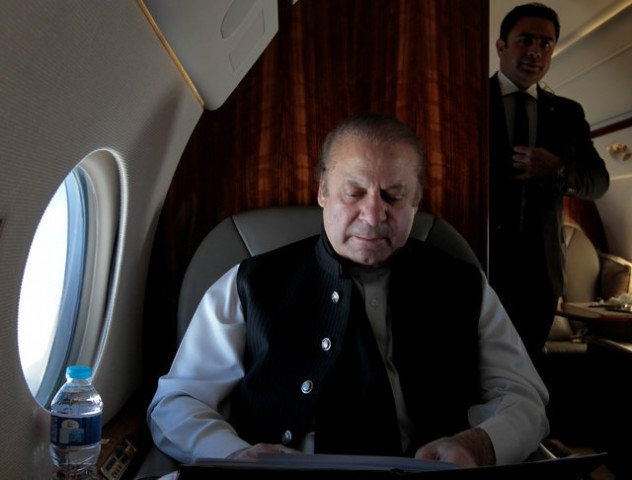Article 62: How we got the law that cost PM his office
Ironically, during drafting of 18th Amendment in 2009 and 2010, PML-N had opposed removal of Article 62

PHOTO: REUTERS
The change was in response to the relative lack of success his pawns had in the elections held three days earlier on February 28.
The purpose was to rework the Constitution to concentrate all power with the dictator.
Article 62 — a law that Nawaz's party had defended becomes his undoing
Some of the controversially reworked language was clauses in Article 62, which now required members of parliament to meet the conditions of being Sadiq and Ameen – two Arabic terms which were never clearly defined in English, the language of the Constitution. For years, the clause has been a favourite tool of right-wing politicians, especially those spawned by the Zia regime, to smear ‘liberal’ opponents.
Meanwhile, in the same 1985 elections, a member of the Punjab Advisory Council, the eldest son of a Zia confidant who was appointed by the junta, was able to win a seat in the provincial assembly and appointed chief minister.
Thus began the rise to prominence of Nawaz Sharif.
How do we apply Article 62, judge asks Imran’s counsel
On July 28, 2017, history went full circle when, based on a reading of Article 62, the Supreme Court ordered Nawaz’s disqualification from the National Assembly for ‘dishonesty’ – namely his failure to declare certain assets.
Ironically, during the drafting of the 18th Amendment to the Constitution in 2009 and 2010, the PML-N had opposed the removal of Article 62.
Then, two years ago, Justice Asif Saeed Khosa, in Ishaq Khan Khakwani case, had described the words Sadiq and Ameen as obscure and impracticable and had also talked about ‘nightmares of interpretation and application that they involved’.
‘SC may disqualify Nawaz under Article 62-B’
Justice Khosa had said that some provisions of Article 62 of the Constitution certainly contained strong moral overtones but noted that the provisions introduced by General Ziaul Haq had not been undone by popularly elected parliaments in the last three decades.
While sections ‘A’, ‘B’, and ‘C’ of Article 62 only deal with age and citizenship requirements, the controversy begins with section ‘D’, which requires members to be “of good character” and “not commonly known as one who violates Islamic Injunctions”; ‘E’, which requires members to have “adequate knowledge of Islamic teachings” and “practise obligatory duties prescribed by Islam as well as abstain from major sins”; and ‘F’, which requires members to be “sagacious, righteous and non-profligate, honest and ameen,” with “there being no declaration to the contrary by a court of law”.
The final section of the article refers to patriotism, while an exemption exists within the Article for non-Muslims, who are only required to have “good moral reputation” without fulfilling the other requirements of sections ‘D’ and ‘E’.



















COMMENTS
Comments are moderated and generally will be posted if they are on-topic and not abusive.
For more information, please see our Comments FAQ